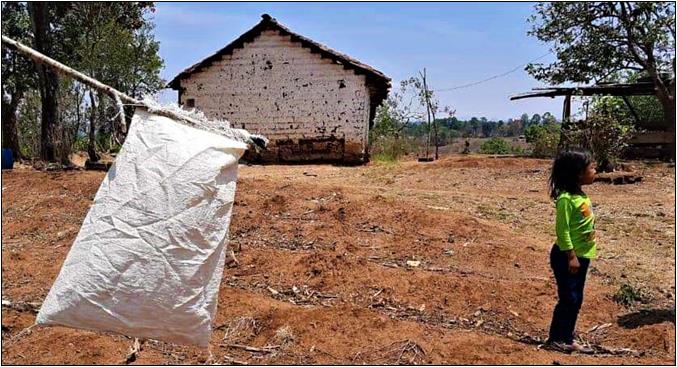Project Harvest works in 12 communities impacted by COVID 19. The pandemic has exacerbated poverty, malnutrition and discrimination in most rural communities, pushing families into food insecurity as a result of escalating unemployment and the economic disorder caused by the virus.
Fragile Family Economies in Collapse
“I left, with 10 others, walking three days to the Honduran border looking for work picking coffee; but no one was hiring. So, I walked back with nothing in my wallet or in my stomach.” Miguel, a resident of Pitahaya, told his family on his return home.
The sources of income of campesino families depend on their economic connections held mostly outside their communities: their work on large export oriented plantations, family remittances from the U.S.A., migration to neighboring countries to look for jobs during harvest times, and work as itinerant traders. The paralyzing restrictions on inter-community movement to contain the virus have greatly limited the ability of families to seek out these sources of economic income. As a result hunger has increased, poverty has worsened.
Food Production Down
“The land we rent to grow food is worn out. Without fertilizer we can only grow half of the crops we are used to harvesting.” Maria Dolores, from Casa Blanca, explains the situation they find themselves in this year.
Campesino families rely on producing half of their annual basic food needs on rented plots of land. It is a bare subsistence or below subsistence existence. It is based mainly on the production of corn and beans. Farmers need inputs for production (fertilizers, occasional remedies for plagues) but, as a consequence of the family economic crisis, most inputs have become unaffordable. This has led to a decrease in the production of basic grains on which they rely. Nevertheless, the families with whom Project Harvest works have gardens which have been a very helpful alternative for feeding their family. (See By the Numbers on flip side of this page.)
Medical Resources Unavailable
“The nurses from government run Health Centers have stopped their monthly monitoring visits to the most severely malnourished children in the community.” Gabriela, from Tunuco Abajo, speaks of feeling distraught by the lack of government services.
In rural areas compliance with government restrictive and preventative measures is next to impossible. The health system at the community level is precarious; the human, material and financial resources needed to address this pandemic are not available. Measures to prevent the spread of the virus are difficult to practice. Families live in cramped quarters with limited money to buy hygiene supplies. One home-made mask is shared between all family members and used only when they go to market.
Inadequate Government Response
“We’re abandoned to our own fate.” Comment by community leader, Isaías, from Chiyat, on the government’s lack of efficiency in implementing support programs for the rural population.
The national government’s responsibility to ensure citizens’ rights to health, food and work is lacking. Families are being hit hard in this crisis. The inequality gap has worsened, as evidenced by insufficient investment to address the crisis in rural areas. Many poor Guatemalans say they still have not received any government support.* The communities are expressing themselves in the voices of their people who say, “We feel forgotten; the government is turning its back on us“.

